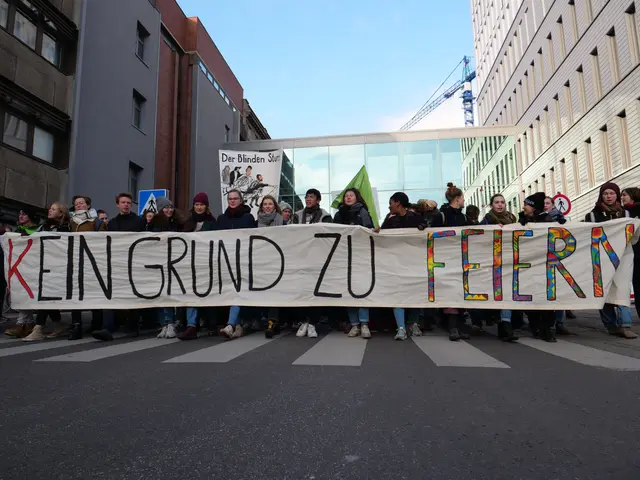Brandenburg’s minimum wage enforcement fails workers amid lax inspections
Brandenburg's minimum wage enforcement has come under scrutiny, with calls for increased inspections and a tender-specific minimum wage. The current minimum wage, set at €12.82 per hour, has been criticized for not adequately protecting workers in government and municipal contracts.
In Brandenburg, only 606 inspections were conducted last year across 80,448 businesses, revealing a significant gap in enforcement. This lack of oversight has allowed fraudulent practices to persist, such as cleaning staff not being paid for overtime. In one common method, a cleaning lady is expected to clean a certain number of offices in four hours but ends up taking six, resulting in unpaid work.
The consequences of this inadequate control are evident in the statistics. In 2022, out of 82,103 businesses, only 781 were inspected by the customs' financial control for black work in just half a year. This led to 1,355 administrative offense proceedings and 174 fines totaling €237,028. However, this is a mere fraction of the potential violations.
Christian Gö́rke (Left) has been a vocal critic of this situation, stating that the control of parking spots is better than the minimum wage enforcement in the Bundestag. He demands more inspections and a significant increase in financial control to combat organized exploitation. The DGB state branch also urges the government to decide on a tender minimum wage of €15 to address the issue.
The current minimum wage enforcement in Brandenburg has been criticized for being insufficient, with only a small fraction of businesses inspected and common fraudulent practices going unpunished. With the minimum wage set to rise to €13.90 in 2026 and €14.60 in 2027, benefiting around 230,000 employees, the need for stronger enforcement is clear. Calls for more inspections and a tender-specific minimum wage highlight the need for action to protect workers and ensure the minimum wage is more than just a figure on paper.
Read also:
- American teenagers taking up farming roles previously filled by immigrants, a concept revisited from 1965's labor market shift.
- Weekly affairs in the German Federal Parliament (Bundestag)
- Landslide claims seven lives, injures six individuals while they work to restore a water channel in the northern region of Pakistan
- Escalating conflict in Sudan has prompted the United Nations to announce a critical gender crisis, highlighting the disproportionate impact of the ongoing violence on women and girls.






